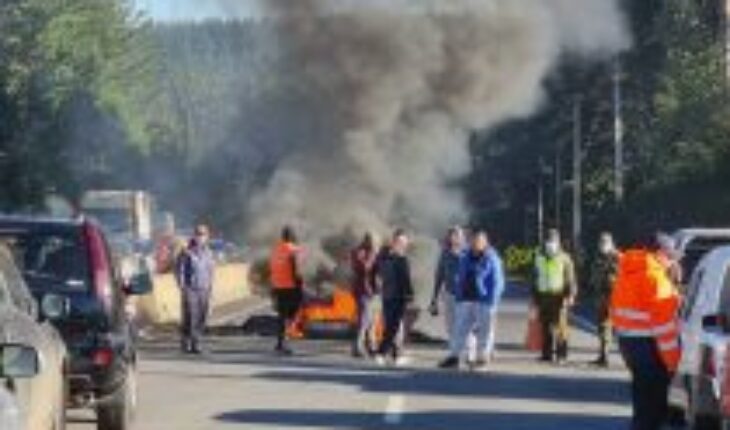At a time when it is difficult for us to agree on even the most basic, an unquestionable certainty stands out: our country has been experiencing a generalized escalation of violence for some time. This is borne out by the new Friday liturgy, led by the nihilistic clashes and destruction in Plaza Italia; uncontrolled street trade; the constant war between Carabineros and students; school violence overwhelmed and a palpable increase in the number and severity of crimes, just to mention a few examples that do not exhaust the list even closely.
As the jurist Carlos Pereira Menaut recalls, we cannot be content with identifying a problem: what is most needed is to reach a fundamental agreement that allows us to move towards its solution. This is especially urgent today, as issues as basic in a democracy as the state monopoly on the legitimate use of force today seem to be in question.
Many times the debate is dominated by two positions: those who relativize the condemnation of violence (questioning the monopoly already mentioned) because they focus on some of its causes, and those who condemn it firmly and ask for a “strong hand”, but forget the multiple issues that are at its root. What Chile needs is to understand the need to reconcile both positions, based on a fundamental agreement on the treatment that generalized violence deserves.
First, let’s talk about the causes of this escalation of violence. Any honest answer to this must start by acknowledging its multicausality. There is something of a crisis of authority and legitimacy of the institutionality at the base, which has undermined the aforementioned monopoly of force, often with the complicity of some political actors and media faces. In addition, there is some social unrest processed as accumulated anger and rage that “explodes” in a chaotic and uncontrolled way when it is believed that there is nothing left to lose trying to overthrow the system. Then, it seems that our judicial system experiences severe difficulties in timely syndicating the culprits, added to a prison system that is not a social priority and that leaves much to be desired in terms of reintegration. There is also something generational to weigh with respect to a youth raised as a digital native, in a world of immediacy and social networks, whose confinement in the midst of stages of development of sociability can also be intimately linked to the problem of school violence.
Each of these aspects deserves not only careful analysis, but also well-designed public policies and well-directed collective efforts. But between immediacy and anxiety, we cannot forget the most primary and fundamental thing: that violence is not tolerable in a democracy worth its salt and the State has the duty to repress it.
This reminder acquires special relevance when there are many in the public debate who, taking one or more of these causes as a flag, use it as a reason to relativize violence, justifying it and contributing in a very worrying way to it finding an environment of legitimacy with which to continue spreading. This is the case of comments such as: “there are other violences” or “the problem is structural violence”, which although sometimes they are relevant, can be tremendously unsatisfactory for so many people who do not want from their authorities a sociological and academic analysis, alien to their drama and suffering, but concrete actions and clarity, without half measures.
After seeing some possible causes of the growing violence and insisting that identifying them can and must be accompanied by a fundamental agreement on the state monopoly of force, we must dwell on what we would have as an alternative to such a monopoly. Let’s look at some effects of the entrenchment of violence as a way of resolving our differences: first, it directly conflicts with any respect for human dignity. Whoever is a victim of it is treated as a means to an end. Another harmful effect is that it annihilates life in common: we can hardly sustain a plural society when pretensions are imposed by force. In addition, it destroys the weakest – it is by definition, use of force, law of the strongest – bringing us closer to the law of the jungle and leaving unprotected those who are not able to assert themselves. Finally, it is something of an uncontrollable nature, it is enough to remember what began in 2019 as alleged “civil disobedience” with jumps on turnstiles and only days later it was looting, arson and destruction unleashed. Sparks are just sparks, but without even realizing it they can quickly set off a fire.
As we can see, there are plenty of reasons to curb violence. As long as we remain trapped as a society without remaking these fundamental agreements, violence will continue to make space, trampling on the way thousands of people and their dignity. On issues like this, gray spaces and relativizations have a cost that we can’t keep paying.
Follow us on
The content expressed in this opinion column is the sole responsibility of its author, and does not necessarily reflect the editorial line or position of El Mostrador.





